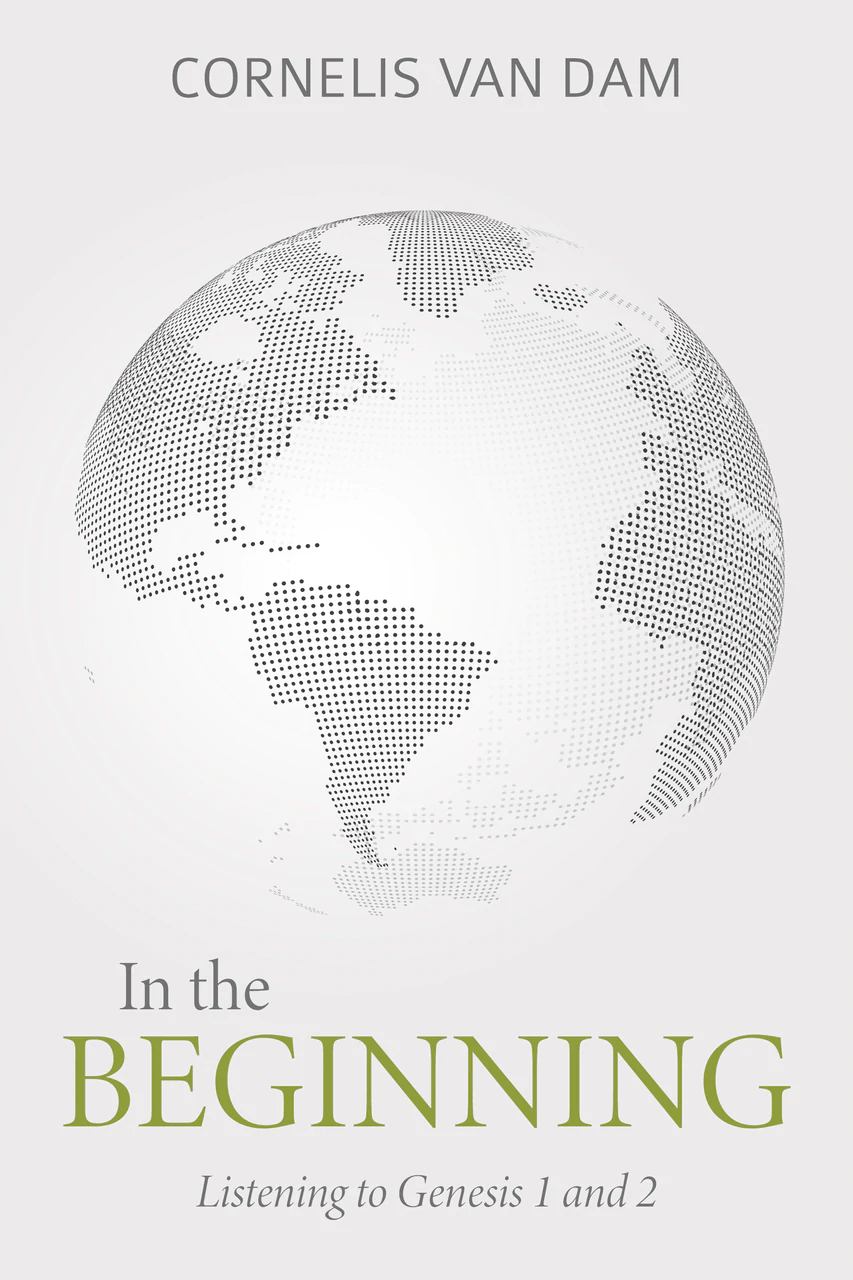
Cornelis Van Dam
Reviewed by: Calvin R. Goligher
In the Beginning: Listening to Genesis 1 and 2, by Cornelis Van Dam. Reformation Heritage, 2021. Hardcover, 400 pages, $23.00. Reviewed by OP pastor Calvin R. Goligher.
The world’s beginning is a point of controversy in the world and in the church. A particularly contentious question is whether the Bible’s creation account is historical. More specifically, did God create the world in the space of a historical week? This book answers yes and argues its case well.
The most important part of the book is the second chapter, on the use of extra-biblical data in interpreting Scripture. Those who deny that Genesis is historical are often trying to harmonize the Bible with scientific or archaeological findings. Van Dam skillfully navigates this complex subject, concluding that biblical interpretation cannot be controlled by either kind of outside evidence.
Van Dam goes on to address a range of issues involved in interpreting Genesis 1 and 2, interacting throughout with biblical scholars and scientists. He refutes various non-literal views of the creation week (his critique of the framework view is especially effective). The final chapter considers how these questions about creation affect our preaching of the gospel.
Van Dam is clear, fair, and thorough. He also models humility. He offers well-aimed reminders that those who insist on a historical creation week must remember that God’s creative work during that week is a mystery far beyond our comprehension.
I disagreed with Van Dam at a couple of small points. He is too negative about the idea that Eden was a temple. There is no conflict between this typological connection and the historicity of Genesis 1 and 2. In a rare slip, Van Dam asserts that we should not read the meaning of later Scriptures into the first chapters of Genesis. In light of the Bible’s divine authorship, however, this is a perfectly valid thing to do (from watching Van Dam at work, I think he would agree). These are small faults, however, in a book marked by a high quality of argumentation.
Unfortunately, the book does not give sustained attention to the philosophical conflict between biblical doctrine and modern materialism. Van Dam shows that he is aware of this conflict, but he gives most of his attention to the authority of Scripture. That is indeed a crucial point, but in my judgment an even deeper issue is that we often unwittingly admit materialistic assumptions into our interpretation of Scripture—even as we confess Scripture’s authority.
That said, Van Dam does provide an ideal resource for converting our minds from materialism in an appendix on heaven and angels. This sober and eminently scriptural description of the supernatural realm was my favorite part of the book. I recommend reading this section slowly and thoughtfully. It will open your mouth to confess the glory of God “maker of heaven and earth, of all things visible and invisible.” It will inflame your heart with longing for the end of all things, when heaven and earth will be reunited.
One could not hope for more from a book on how the universe began.
November 09, 2025
November 02, 2025
October 26, 2025
October 19, 2025
October 05, 2025
Raising Sexually Faithful Kids and
Parenting Boys and Girls in a Gender-Confused World
September 28, 2025
Calvin’s Ecclesiology: A Study in the History of Doctrine
September 21, 2025
© 2025 The Orthodox Presbyterian Church